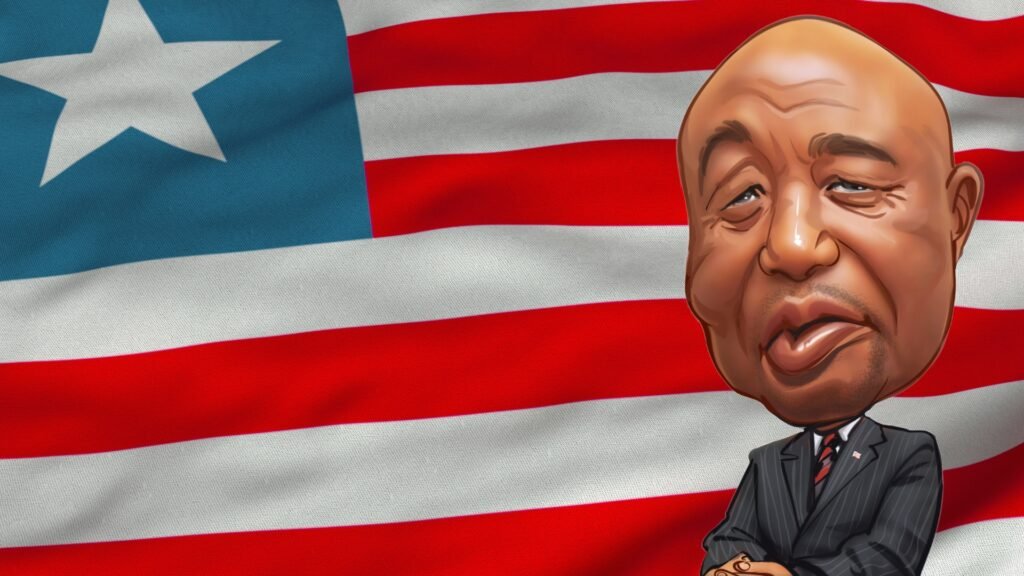MONROVIA – In a move that has sparked a heated debate about fairness and accountability in government, President Joseph Boakai recently asked his Minister of Commerce, Amin Modad, to resign. This request followed reports that Modad purchased a luxury SUV worth approximately $150,000. The resignation came after an emergency cabinet meeting where sources reported that Modad felt particularly unwelcome, receiving what were described as damning stares from the President.
President Boakai, upon his return earlier this week, expressed strong disapproval of government officials indulging in luxuries at the expense of Liberian citizens. He stated publicly that he would be willing to ride a wheelbarrow to work, indirectly referencing the controversy surrounding Modad’s vehicle purchase without naming him explicitly.
The controversy began with allegations that the SUV, rumored to cost $150,000, was a gift from MedTech Scientific Liberia Limited, a Dubai-based subsidiary. However, conflicting information soon emerged from the Liberia Revenue Authority (LRA) and Modad’s Ministry of Commerce and Industry (MoCI).
In a statement dated September 23, 2024, the LRA clarified that the vehicle purchase amounted to $96,000, not $150,000 as initially reported. The Customs Authority confirmed that it had approved MoCI’s request for $96,000 from its Customs Capacity Building Fund in early May 2024. These funds were allocated under the Destination Inspection (DI) Contract with MedTech Scientific Limited, specifically to procure vehicles to support MoCI operations. The LRA categorically denied any involvement in receiving bribes from MedTech or any other entity.
Despite these clarifications, critics have questioned why Modad was singled out when other officials have faced similar or more serious allegations without facing consequences. For instance, earlier this year, it was reported that Hon. Sylvester M. Grigsby, Advisor to the President-elect at the time, requested $5 million from the National Social Security Corporation for President-elect Boakai’s inauguration program.
Moreover, a recent audit report from the General Auditing Commission (GAC) indicted the current head of the Liberia Telecommunications Authority (LTA) for serious financial mismanagement. The audit revealed unauthorized payments involving millions of Liberian and U.S. dollars linked to the Liberia Digital Transformation Project (LDTP). The LTA authorized payments of L$262,844,500 and $450,000 to two companies without basic accountability measures, such as signed contracts, proper project documentation, or regular progress reports.
Additionally, there is the unresolved controversy surrounding the acquisition of 285 earthmoving machines for road construction and maintenance, led by Mamaka Bility. Furthermore, the Public Works Ministry recently admitted to procedural errors in implementing a $22 million road works project under President Boakai’s 100-day deliverables, bypassing essential procurement processes.
These incidents have fueled public skepticism about the President’s commitment to tackling corruption and ensuring accountability. While President Boakai has taken a firm stance against Modad, critics argue that his administration has shown a pattern of selective justice.
Political analyst James F. Kollie noted, “The President’s actions raise questions about whether there is a genuine commitment to fighting corruption across the board or if these decisions are politically motivated. It is crucial for the administration to address all allegations of corruption with equal seriousness to maintain public trust.”
The Liberia Revenue Authority (LRA) reiterated that the vehicles in question are intended for trade-related operations in partnership with Customs, with MoCI overseeing the specifications and allocation. This arrangement is part of the DI contract with MedTech, wherein the LRA receives a 20% share of the fees generated.
As the administration continues to deal with these controversies, the public remains divided on whether President Boakai’s actions reflect a genuine effort to uphold integrity in government or a selective approach that undermines the fight against corruption.

